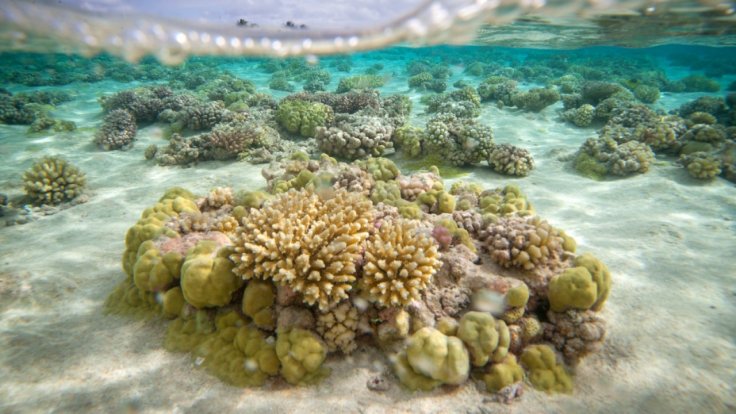
Earlier it was about the rising temperature on the grounds, but now scientists are extremely concerned about the record-breaking temperature of the oceans in this summer due to the heat waves.
In the starting of this month a scientist, Art Miller of the Scripps Institution of Oceanography recorded all-time high seawater temperatures since the daily measurements began in 1916 at the San Diego coast. He mentioned that the way people are witnessing the heat waves on the land, the same is now visible in the ocean.
Miller understood that something was extremely wrong when he saw bat rays, which typically only assemble in pockets of warm water, was swimming just off the pier earlier this month. He said that the changes in the ocean's temperature also affect the production of the tiny organisms called phytoplankton, which forms the basis of the marine food web.
A study named "Marine heatwaves under global warming," which is published in the journal Nature has stated, "Some of the recently observed marine heatwaves revealed the high vulnerability of marine ecosystems and fisheries to such extreme climate events."
A climate scientist at the University of Bern in Switzerland, Thomas Frolicher, who led the research said that this temperature will continue to further accelerate with global warming.
The study added that between 1982 and 2016, researchers have seen a doubling in the number of MHW days and this increased numbers indicates towards a further increase on average "by a factor of 16 for global warming of 1.5 degrees Celsius relative to pre-industrial levels and by a factor of 23 for global warming of 2.0 degrees Celsius."
Earlier, in another study, scientists detected the rise of heat waves on the lands and claimed that if the global temperature remains unchecked, then such extreme conditions could trigger fatal heat, which will cause the highest global mortality rates. But, now the researchers are equally concerned about the ocean's ecosystem, as this rising threat is capable of damaging kelp forests and coral reefs and it can harm fish and other marine life.
In addition, Frolicher said that his team of researchers have defined the marine heat waves as an extreme event. They also stated that in such extreme situation the temperature levels of sea-surface can be exceeded the 99th percentile of measurements for a given location, as the oceans absorb and release heat more slowly than air that allows to last those heat waves at least several days or maybe for weeks.
Michael Oppenheimer, a Princeton University climate scientist who was not involved in the study said that the rise of the average temperature is a known fact but "What we haven't focused on before is that the rise in the average comes at you in clumps of very hot days -- a shock of several days or weeks of very high temperatures."
Shang-Ping Xie, a climate researcher at Scripps and co-author of a study, published in the Journal of Climate said, "The ocean heat uptake moderates atmospheric warming by storing much of the greenhouse heat below the surface. We now show that the ocean uptake is not only uneven, but its distribution also evolves with time."
These researchers have calculated the faster rates of warming than previously predicted for the North Atlantic Ocean. Lynne Talley, a professor at Scripps and co-author of the study claimed that the important fact about the Southern Ocean is, it "has been heating over the past few decades, and this will continue. What's changing is that the North Atlantic is starting to join in as a second major heat sink, which will affect circulation and climate around the North Atlantic."
An ecologist at the Scottish Marine Institute, Michael Burrows said that while some free-swimming marine animals can shift their locations due to the rise of the ocean temperature, organisms such as coral reefs and kelp forests have to face the real threat, as they don't have an option to relocate. Between 2016 and 2017, such extreme temperature in eastern Australia has already killed almost half of the shallow water corals of the Great Barrier Reef.
In addition, Ove Hoegh-Guldberg, a marine biologist at the University of Queensland said, "One in every four fish in the ocean lives in or around coral reefs. So much of the ocean's biodiversity depends upon a fairly small amount of the ocean floor."
Between 2013 and 2016, the scientists also detected high temperatures in the Pacific Ocean that decreased the production of phytoplankton and caused thousands of California sea lion pups to starve.








